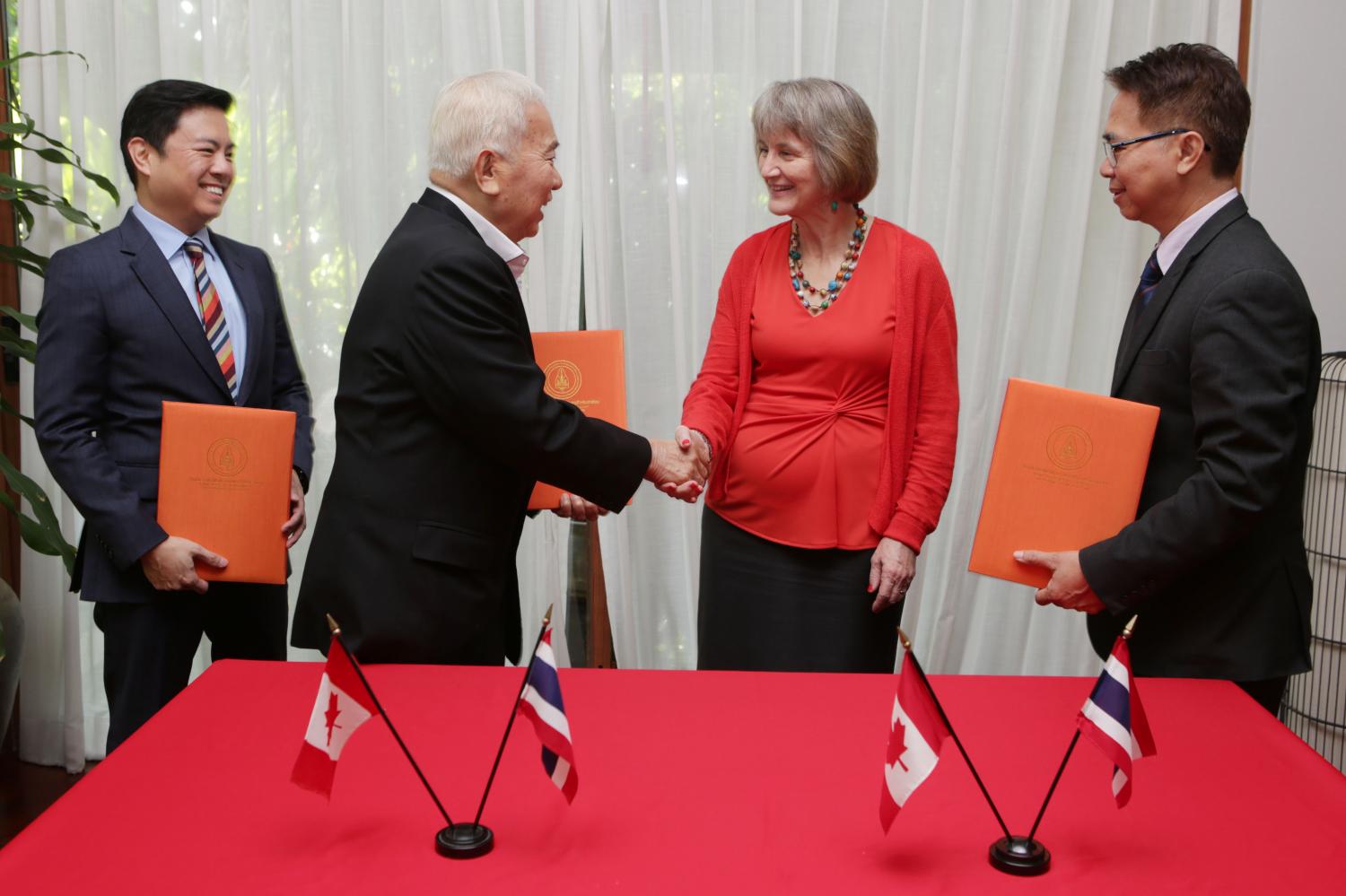
Students at Khon Kaen University's Faculty of Education will be the first group of learners to try a new hybrid online platform aimed at improving their grasp of the English language in the upcoming semester.
On Monday, Khon Kaen University, the Thai-Canada Economic Cooperation Foundation and Braincloud Learning company signed the Memorandum of Agreement for Academic Collaboration-Enhancing English Language Proficiency of Students and Professional Teachers, spurring hopes this will be a big step towards improving the English learning capacity of university students.
Braincloud Learning is a Quebec and Thailand-based e-learning company that has developed state-of-the-art technological infrastructure and a learning platform designed to accelerate and promote language acquisition through neurolinguistics.
It links live native English instructors with a classroom -- comprised of local Thai teachers and students -- to deliver a programme based on Quebec's highly regarded ESL curriculum.
HE Sarah Taylor, Ambassador of Canada to Thailand, Laos and Cambodia who witnessed the MoA signing ceremony, said technology is useful for learning English in the present day, adding that in the past, Thai students might have had less of a chance to communicate with English-speaking teachers, giving them less opportunity to listen to and learn from native speakers. But right now, they can use this state-of-the-art technology to improve their communication skills far better than they could have done in the past.
She added the government will introduce the project "Teach in Thailand", where around 10,000 young graduates from English native-speaking countries will be paid to teach English to Thai students.
Young graduates from Canada are among those who will benefit from the project.
Jingjai Hanchanlash, president of the Thai-Canada Economic Cooperation Foundation, said the project is designed to tackle the problems of Thai student's poor ability to speak and listen to the English language, which is one of the country's weaker points.
He said the project of Enhancing English Language Proficiency of Students and Professional Teachers was launched for the first time to young students in remote areas in Yala province five years ago. Now, it has been elevated to help students of higher education learn English with greater efficiency, with the help of technology.
At least 30 students from the Faculty of Education will attend the pilot project at Khon Kaen University, which will allow them to develop their speaking and listening abilities with an online native-speaking teacher based in Bangkok and a lecturer in the class who sits in with the students during the class.
Maitree Inprasitha, director of the Institute for Research and Development in Teaching Profession for Asean, Khon Kaen University, said the programme is currently only available for scholarship students who are going to teach English following graduation.
This is the target group as these students need to brush up on their English language skills so they can have the confidence to teach.
"We are satisfied with the project. It has helped us a lot during Covid and made it easier for us to find native English teachers, reducing all limitations that prevented our students from learning English efficiently in the past. We are confident the programme will enhance our student's ability to communicate better in the English language," he added.
Meanwhile, Tan Saomboonsrub, founder and CEO of Braincloud Learning, said he is interested in providing an opportunity to students living in remote areas in the Deep South, saying those children should be given the chance to learn English in a more effective way.
The company worked with 19 schools in the province to provide English classes to young children who were given the chance to directly communicate with native speaking English teachers online.
"The feedback has been good. We don't only help students learn English, but also help increase teacher's confidence to teach English to those students. And now, we have extended our programme to higher-level students with the hope of getting more good feedback," he added.